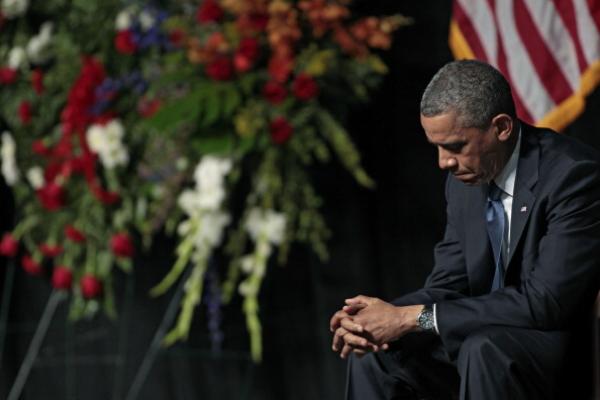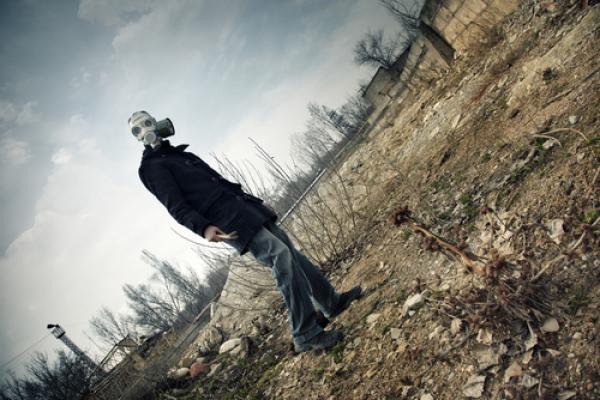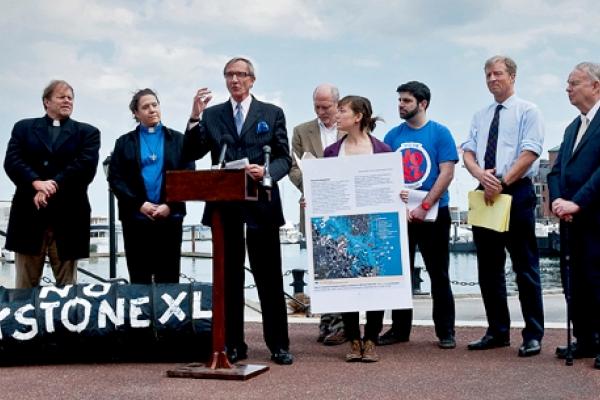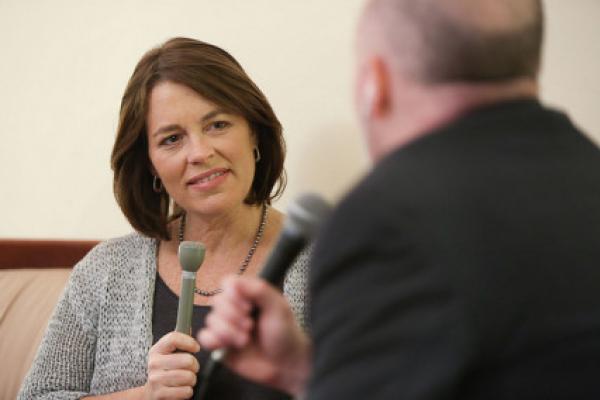Five men who know what it means to be president of the United States shared a stage in University Park, Texas. Then the incumbent among them flew to Waco, to mourn 11 first-responders, killed in a fertilizer plant explosion in the small town of West, Texas.
All presidents try to rewrite history to burnish their brief place in it. And in his new presidential library, George W. Bush will have his turn.
Barack Obama’s legacy is still a work in progress, though even sympathetic commentators are seeing him now, in his fifth year, as too slow to act, too cerebral to brawl, and too little respected by his political enemies.
In one role, however, Obama has excelled: “Mourner in Chief” — not one of his constitutional duties but oddly important.
The first draft of form was confusing and complex so the Obama administration has created a simplified application for healthcare. The Associated Press reports:
Details to be released Tuesday include a three-page short form that single people can fill out, administration officials said. Medicare chief Marilyn Tavenner, also overseeing the rollout of the health care law, called it "significantly shorter than industry standards."
Read more here.
The sea-surface temperatures were the highest measured in 150 years in 2012. USA Today reports:
"The average temperature in that area hit a record high of 57.2 degrees last year. The previous record was set in 1951, according to NOAA."
The rise in temperature could influence fish and shellfish on the Northeast shell.
Read more here.
Today a $4 million plan was announced by the U.S. Department of Agriculture. The plan will increase the use of federal food credits at farmers markets by allowing retailers to use wireless technology to connect sellers with the SNAP program. The Washington Post reports:
“These grants increase the availability of fresh fruits and vegetables to SNAP customers and further encourage them to purchase and prepare healthy foods for their families using SNAP benefits,” said Agriculture Undersecretary Kevin Concannon.
Read more here.
“It is a commonplace that the job of Archbishop of Canterbury is one you wouldn't wish on [even] your most antagonistic blogger,” quips Samuel Wells, Vicar of St. Martin-in-the-Fields in London.
This sense of humor about the office extends to the new leader of the Church of England himself. “[O]nly 40 percent of churchgoers are convinced that the new Archbishop of Canterbury can resolve the problems of the Church of England. I do hope that means the other 60 percent thought the idea so barking mad that they did not answer the question,” said Justin Welby in his first Easter sermon last month.
But the question is a valid one. Welby certainly has his work cut out for him. The Anglican Church, splintered by years of division over questions of homosexuality, same-sex marriage and women’s leadership in the church, faces an uphill road to reconciliation.
What comes into your mind when you hear the word apocalypse? Most of us think of us think of the total destruction of the world, or at least life as we know it. Think zombies roaming the streets, feasting on brains. On the other hand, my sarcastic generation is doing a pretty good job of using apocalypse as a silly word. I remember a few years ago when we had a large winter storm here in Washington, D.C.; it was instantly dubbed Snowpocalypse!
The English word apocalypse derives from the ancient Greek apocalupsis, which is the original title for the infamous Book of Revelation. Revelation involves a lot of fire, smoke, battles, and things generally blowing up, so it’s understandable that today we would associate apocalypse with end-times battles. However, the word apocalypse contains a much deeper meaning. Far more profound than the long-awaited zombie hordes – or even the end-times prophecies of some churchgoers – this ancient, misunderstood word is an essential tool for comprehending the world we live in.
Apocalupsis is a term that means unveiling – as in setting aside a covering to discover what lies underneath. At the most basic level, the Book of Revelation is about removing the blindfold that the Powers have pulled over our eyes, allowing us to see the world as it really is. Revelation is about unveiling Empire, exposing the ways in which powerful interests destroy the earth and enslave other human beings to promote their own luxury and power. Despite its reputation, Revelation is not about a future-oriented, earth-hating vision of universal destruction. On the contrary, it is a vision of a new creation and universal restoration – the world finally set right and edenic harmony restored in the midst of the city.
OK – great, you may be saying. Nice to know, but how is this relevant to me?
Fair question. It’s true that the Book of Revelation was written almost 2,000 years ago. Those were the days of the Roman Empire – think Ben Hur and Spartacus. For sure, things have changed a lot since then.
Yet, the more things change, the more they stay the same.
Here in the Upper Midwest (I live in Minnesota), the importance of higher ground is not just metaphorical, as snowmelt-fed flood waters rise to envelope communities. People, quite literally, are forced to higher ground by floods.
It is interesting, too, what happens when that higher ground, the literal higher ground, is sought. Necessarily, there are more people in a smaller area; that’s the nature of it. Diverse groups are forced together. We know these images from the news: the floating cars, and then the displaced people together in a school gym, talking. The power of that second image is that it shows an unexpected, shared space. People have grabbed what they could and fled to this place, often by walking uphill, and now they find themselves together.
When the metaphorical waters rise and destroy what we know or count on, people do the same thing, but that higher ground is a broad mutual faith that encompasses the belief that there is something greater than ourselves, that there must be a reason for these tragedies; we turn to God. Recently, we have seen this happen in Boston and in West, Texas. At the memorial for the victims of the explosion in West, held at Baylor University, President Barack Obama spoke openly about faith.
A pipeline that will run from Canada, through the Midwest, and down to the Gulf Coast, the purpose of Keystone is to transport tar sands oil, which is more toxic than conventional oil, to ports where it can be processed and shipped overseas. In fact, the only oil that is guaranteed to stay in the U.S. is what will be spilled in communities and on farmlands. We saw this happen recently when a similar pipeline spilled in Arkansas. And, as for the promise of jobs, independent studies say fewer than 50 permanent jobs will be created by this project. Keystone is a deal in which America gets all the risk without any reward.
It's time for our leaders to take a stand and to stop supporting projects that only perpetuate our dependence on toxic, dirty sources of energy that contribute to climate change. But in the world of politics, it's not enough for something to be a moral imperative to get people to act. It is the nature of politics, and democracy, that our leaders respond when they feel the political pressure to do so. As people of faith, we have a powerful voice in our country. Keystone would not have been an issue in the Massachusetts Senate race if local religious communities had not made it clear that it is important.
Last year, 506 murders happened in the city of Chicago — the majority of them in black communities. Similar rates of violence swept through places like Philadelphia, Camden, N.J., New Orleans, and the list could go on and on. I have in my life begun to declare myself a pacifist. I have made this change because I think, as a black man, the only recourse for me is to try and stop violence that happens in so many black communities. Turning the other cheek, responding with a gentle answer, forgiving a misunderstanding: these are the paths to recovery in my neighborhood.
The “if someone hits you, hit them back” mentality is destroying black men at an alarming rate. Dads, teach your boys to talk it over, look the other way, or keep walking when things begin to escalate.
A former adviser to Sarah Palin and an attorney with a long record of advocating conservative causes, will become the first spokeswoman for the president of the U.S. Conference of Catholic Bishops, the USCCB announced Monday.
The addition of Kim Daniels, who is a leader of the conservative media lobby, Catholic Voices USA, seems aimed at revamping the hierarchy’s communications strategy, which many bishops say has been hampered by a lack of coordination and an authoritative spokesperson.
Under the new structure, Daniels will speak for the president of the bishops’ conference — currently New York Cardinal Timothy Dolan — while the USCCB’s media office will continue to speak for the bishops as a whole.
Daniels’ hiring also looks like an effort to satisfy Dolan’s goal of finding an “attractive, articulate, intelligent” laywoman to help recast the hierarchy’s image, which many feared was starting to be seen as unfriendly to women because of legal battles like the fight against the Obama administration’s contraception mandate.
Daniels has experience in that field, having worked for years with the Thomas More Law Center, a conservative legal group, where she fought, for example, for the rights of pharmacists to claim a conscience exemption from dispensing morning-after pills. Such religious liberty battles have become a public policy priority for the bishops, and having Daniels on board gives another veteran voice to the bishops’ campaign.
Yet the hiring — Daniels has been working on a “contract basis,” according to the USCCB — also raises many questions that the USCCB’s brief press release did not answer.






